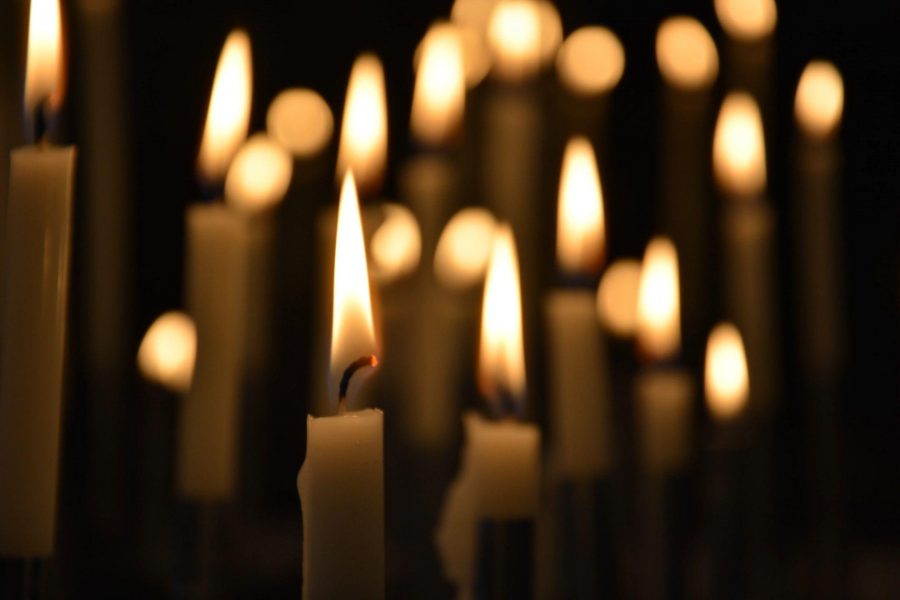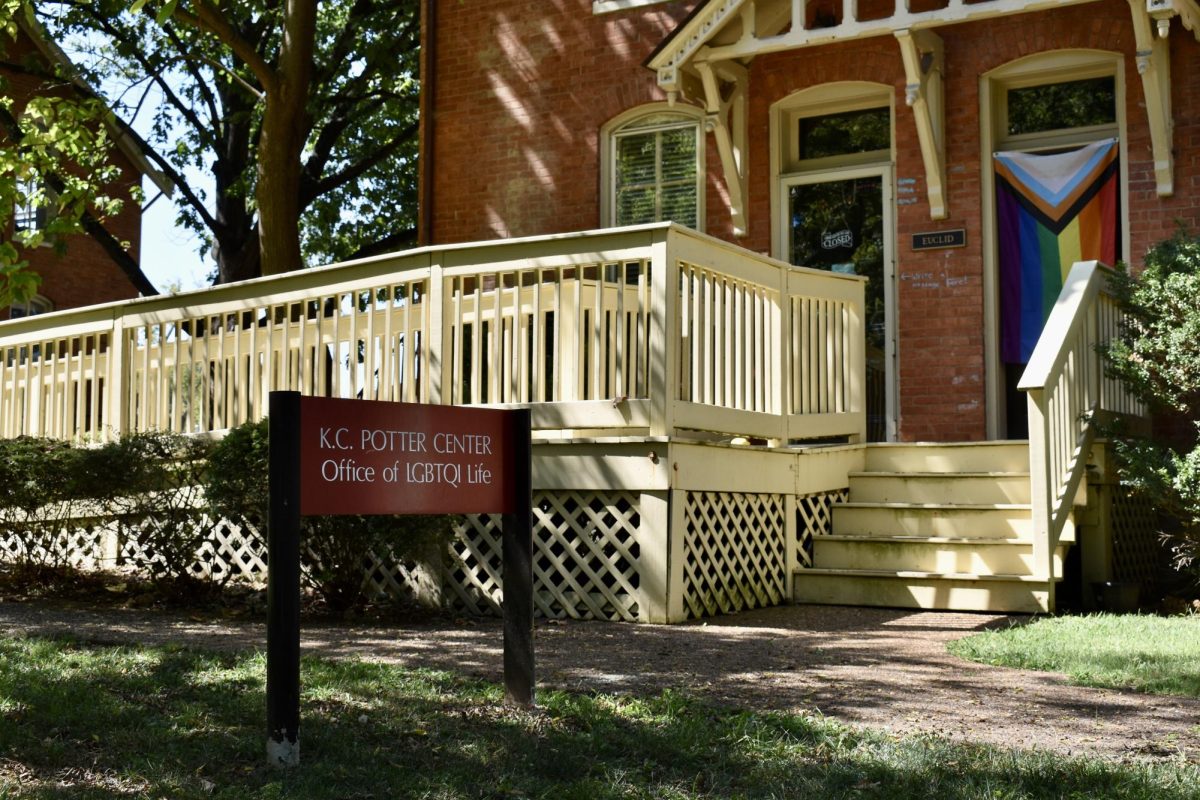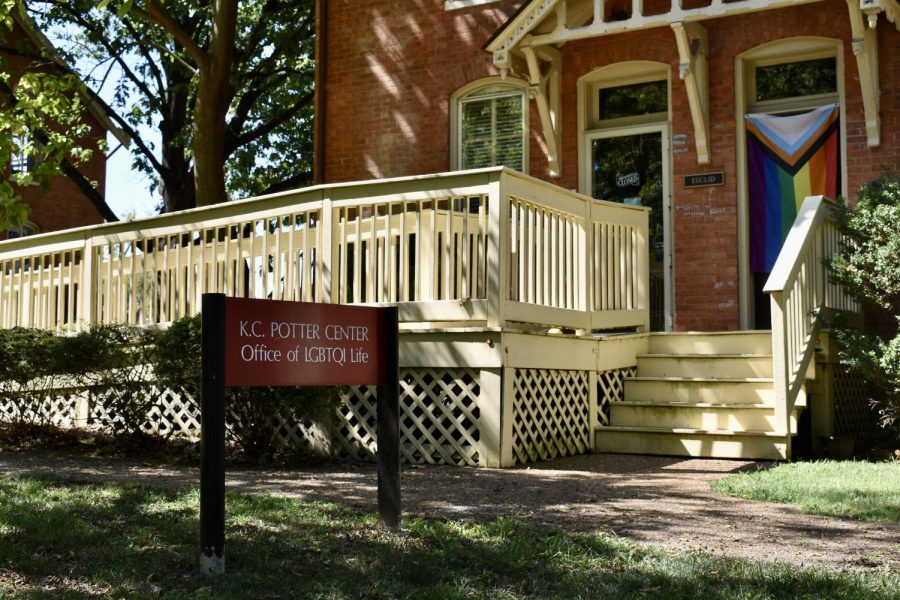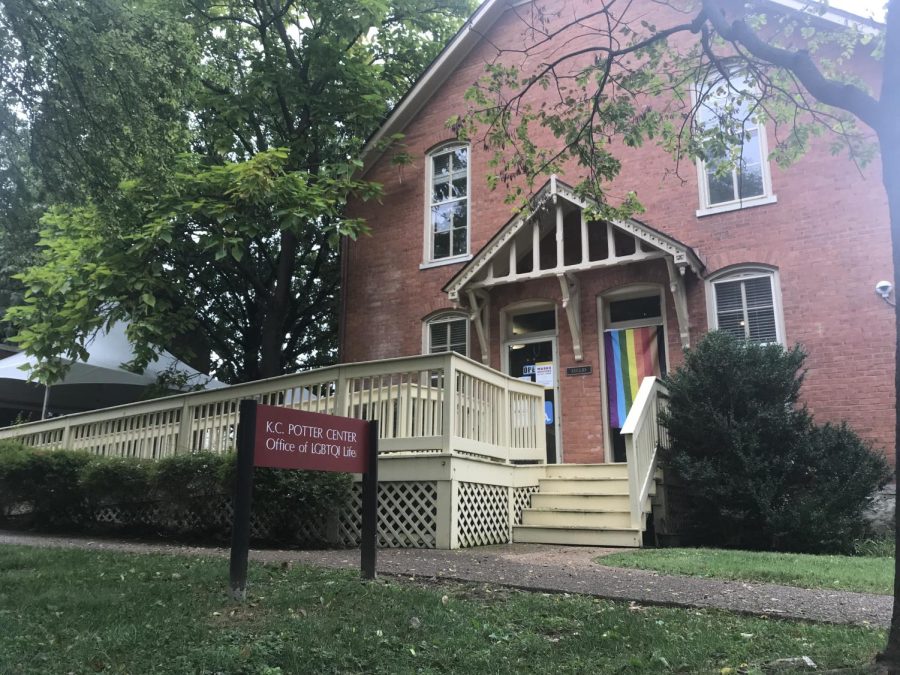The International Transgender Day of Remembrance, observed on Nov. 20, is a day dedicated to memorializing those who have lost their lives as a result of transphobia. Started in 1999 to honor the loss of Rita Hester to transphobic violence and other deaths that followed, the vigil is meant to not only remember those in the community lost, but also to raise public awareness of the hate crimes committed against trans people and to express love within the community. Though the numbers differ across organizations, this year more than 300 individuals will be memorialized, with their names read aloud during the vigil. Nashville’s International Transgender Day of Remembrance will take place today, Nov. 15, at 7 p.m. at the Scarritt Bennet Center.
Shawn Reilly, a current master’s student at Peabody College and a recent undergraduate alum, is organizing this year’s TDOR in Nashville. They also organized the #WontBeErased Rally earlier this year in response to the Trump administration’s proposal to redefine gender as biological and immutable. They are heavily involved in Nashville’s transgender community, serving as the Trans Buddy program coordinator for the Program of LGBTQ Health at Vanderbilt, the Student Engagement and Leadership Chair of GLSEN Tennessee, youth advisory board member of Healthy and Free Tennessee and as a member of the TN Department of Health Transgender Task Force.
The Hustler spoke with Shawn about their time at Vanderbilt, their involvement with the trans community and today’s Nashville TDOR observation.
Vanderbilt Hustler: How were you involved with the trans community at Vanderbilt?
Shawn Reilly: In the beginning of my time at Vanderbilt, I was highly involved in Lambda, and other formal engagements with LGBTQI Life. I was the Vice President of Lambda in my Sophomore year. Beyond sophomore year, I became really involved in LGBTQI work in Nashville, primarily through working with the Students of Stonewall at the Oasis Center. Throughout my undergraduate career, I devoted a lot of my time to on-campus organizing, much of which was around transgender liberation issues. I worked with students to get gender inclusive housing implemented, and to get preferred names and pronouns on academic and RA rosters.
VH: How did you feel about the way your identity was or wasn’t recognized by the university? Were there any policies in place that either helped or hindered your ability to fully express yourself?
We have incredible individuals, supported by their community, who are blazing trails for others.
SR: Vanderbilt is a completely different place for transgender people than it was when I started in 2013. We have gender inclusive restrooms and housing, we have pronouns on rosters, we have transgender related procedures covered by students health insurance. All of these things have come about through strategic student organizing and activism. All of these policies allow me to live authentically as a trans person on campus. Before these structural changes, it was sometimes difficult to express myself on campus.
VH: What are some of the struggles trans students face on campus?
SR: Transgender students across the country experience disgustingly high rates of harassment, and physical and sexual assault. Trans students face barriers to healthcare, disparities in mental and physical health, and constant micro-aggressions. Vanderbilt has done some to address these issues, but there is still so much to be done. Queer and transgender people need to be included in curriculum and classrooms beyond Women and Gender Studies classes, and students need the option to put their preferred name on IDs. We need emergency aid for queer and transgender students when their families cut them off. With the semi-recent rollbacks of Title IX protections, students need and deserve an explicit statement from Vanderbilt that commits the university to affirming the gender identity of students even if not reflected in their legal documents. When there are national emergencies, we all receive emails from administration offering their condolences and resources students can access. For queer and trans students under the current presidential administration, as well as for refugees, women, religious minorities, immigrants, people of color, people with disabilities, Native peoples and all historically disenfranchised communities, we are in a national emergency. Our communities are under attack, and we need explicit support from Vanderbilt.
VH: I don’t want this piece to just be about difficulties– can you tell me about pride in the trans community?
SR: There is so much pride and resiliency in the transgender community. There are structural supports. Today, there are 207 companies that provide healthcare for transgender workers. 18 states and the District of Columbia have laws that clearly protect transgender people. Programs like the trans-founded trans-led Trans Buddy program at Vanderbilt offers trans people support while navigating the healthcare system. We have incredible individuals, supported by their community, who are blazing trails for others. During the 2017 election, eight transgender individuals were elected to public office positions. This year, we had the first transgender Democratic nominee for governor in Vermont, Christine Hallquist, and the election of Amelia Marquez as the first trans state legislator in Montana. In Massachusetts, policies to protect transgender people were upheld. In response to federal attacks on the community, trans people across the country are organizing direct actions and mobilizing their communities.
Our communities are under attack, and we need explicit support from Vanderbilt
VH: What is the importance, to you, of the Transgender Day of Remembrance?
SR: Every year, hundreds of transgender people die from anti-transgender violence. Many more die from suicide and systemic failures to support people holistically. Often times during these deaths, media outlets report transgender people’s genders, pronouns and names inaccurately. People are generally largely ignorant to the violences that transgender people face every day. Transgender Day of Remembrance was founded in 1999, to remember those in our community that we have lost, and to memorialize them in ways that honor their full identities. It’s a way for transgender people and their allies to come together and mourn deeply while in community. Personally, it is a day that helps me recenter my work and reground myself in the violent realities that transgender people, particularly transgender women of color, experience.
VH: What work has gone into organizing the event?
SR: Organizing the event comes about through partnership with a number of stakeholders at Vanderbilt and in the Nashville community. Reaching out to transgender community members is key to making sure that a spectrum of voices are included in the creation of the event. I try to center transgender people of color, as they are the most likely to be victimized by anti-transgender violence. We work with community organizations to have them table, as a way to connect attendees to resources beyond the event. What has been particularly energizing in organizing this has been working with some local high school students to add some things to the event that will be new this year, like a timeline of transgender history.
VH: How is it that you came into organizing events like these (TDOR, #WontBeErased) for the Nashville community? Are you filling a role held by someone before you, or is this an initiative you’re taking to push for more events?
SR: There has been a long history of organizing for and by transgender communities in Nashville that predates my time at Vanderbilt. When I got involved in the community, I tried to help out as much as I can, and learn as much as I can, from trans elders and veteran organizers. I learned a lot of my organizing from the labor movement, and the public education movement. I used a lot of what I learned to enact change on Vandy’s campus. As I got more involved in the Nashville community, a lot of my organizing moved to community based activism. While there was and is a lot of direct service work, and policy advocacy, there were and are some gaps in direct action and event organizing. When something big happens, like the rolling back of the Title IX guidelines, or the HHS memo, I first ask around to see if anyone else is organizing responses. I want to first be supportive of the work that others are doing. When I saw that nothing was yet being organized, I just felt a pull to do it, and jumped in. With Trans Day of Remembrance, it has been hosted under Vanderbilt LGBTQI Life for years, under transgender leadership. I have helped in the past organize it, and jumped in to help get it off the ground this year.
VH: What can attendees expect to see at the TDOR event?
SR: Attendees at TDOR can expect to hear about the history of the day, and the names of those we have lost so far this year. They will be able to hear from transgender organizers and leaders about the resilience and resistance that reside in the bones of queer and trans people. They will be able to walk through a timeline of transgender history, and connect to community resources for action steps and continued support.










